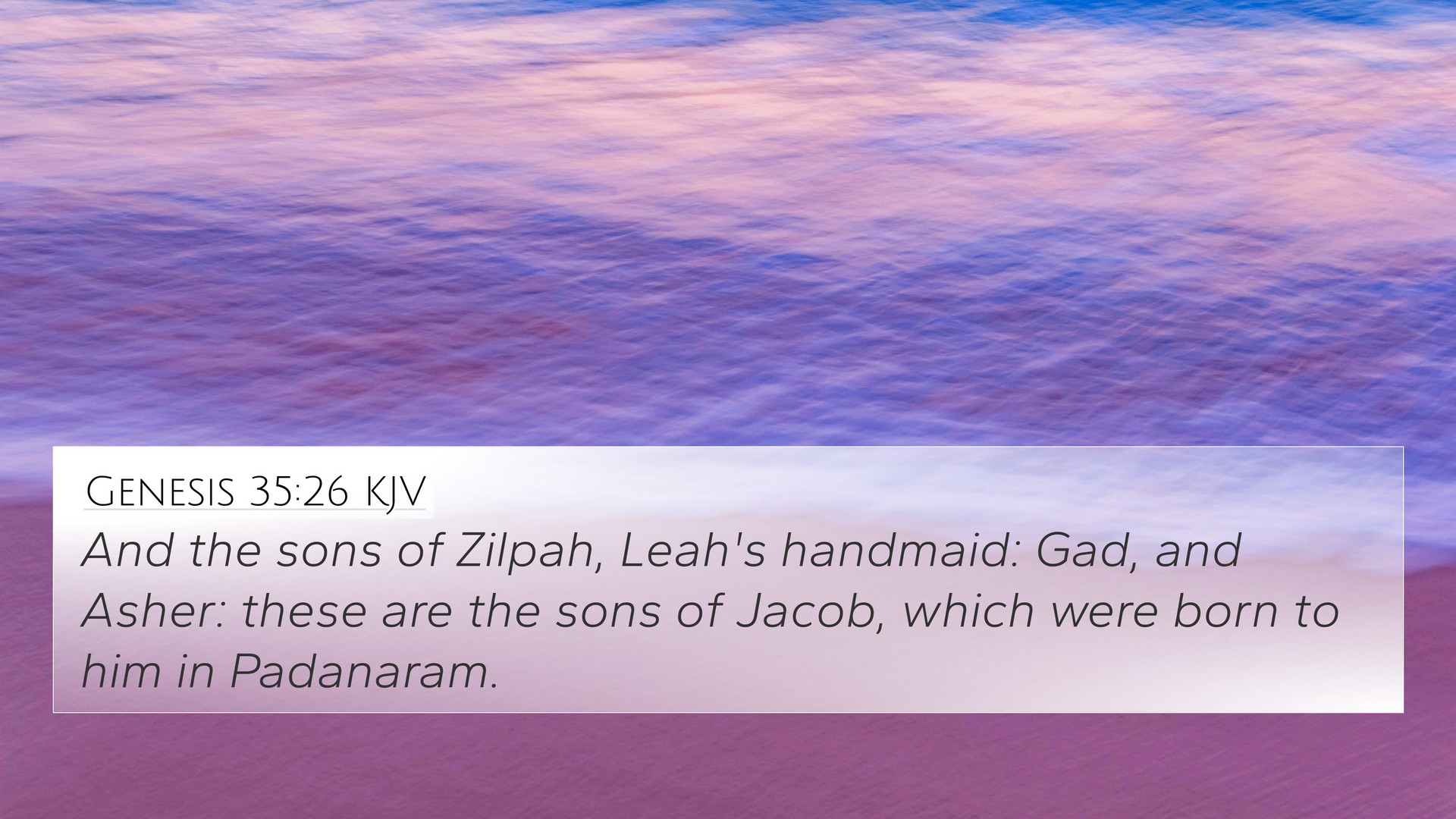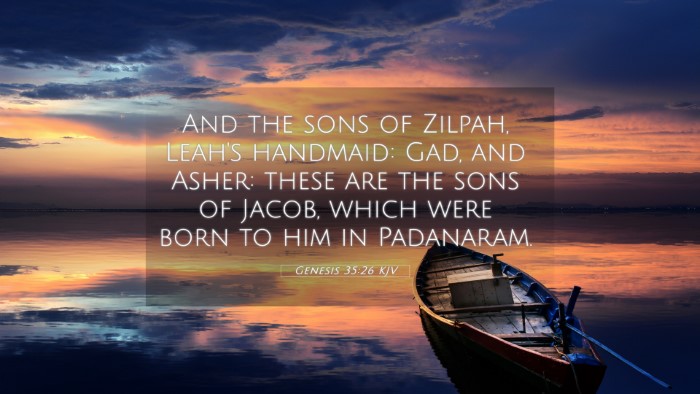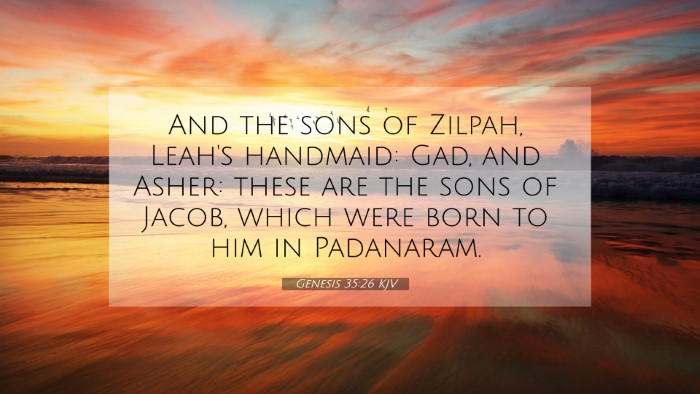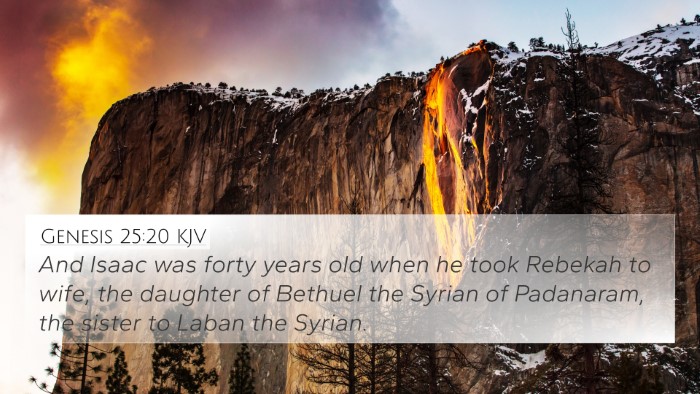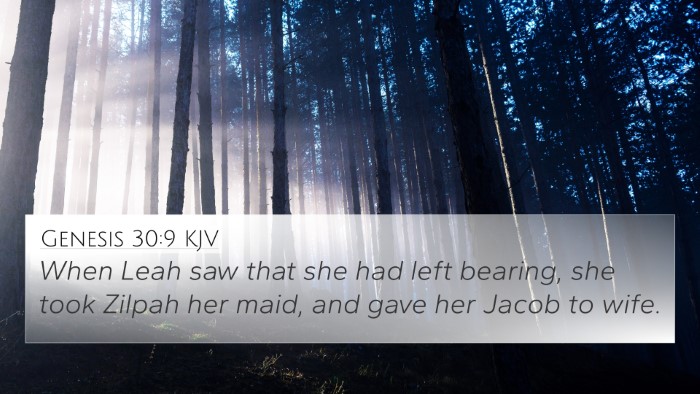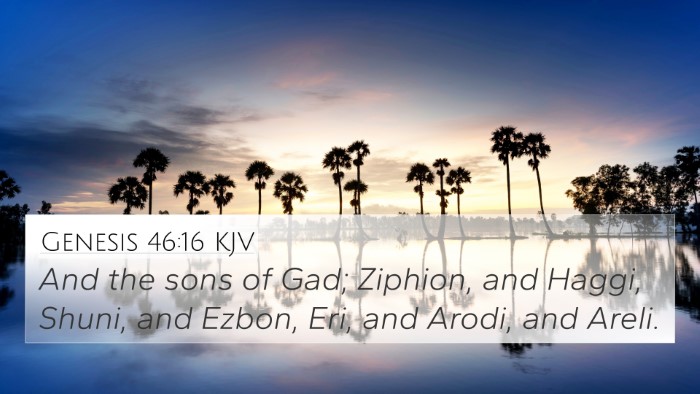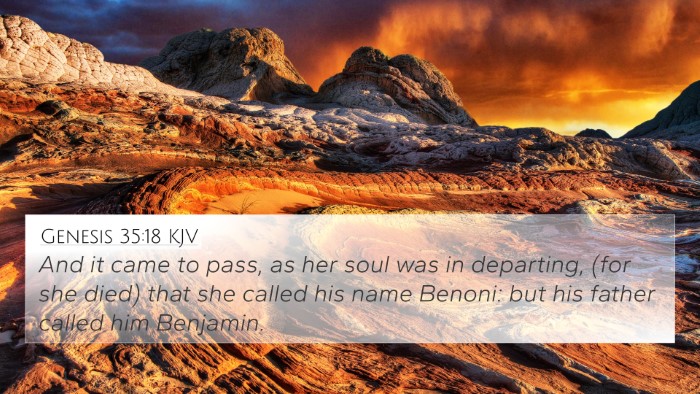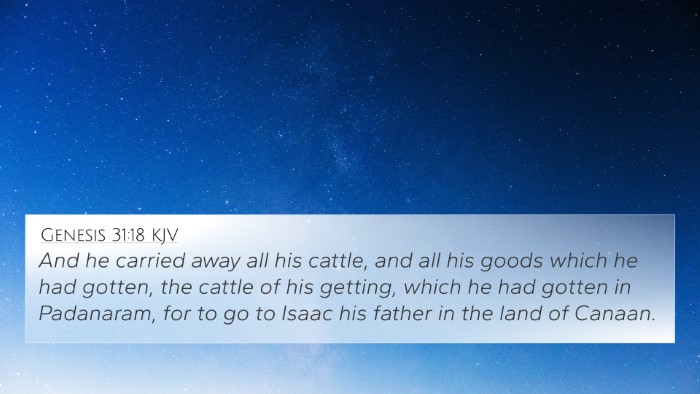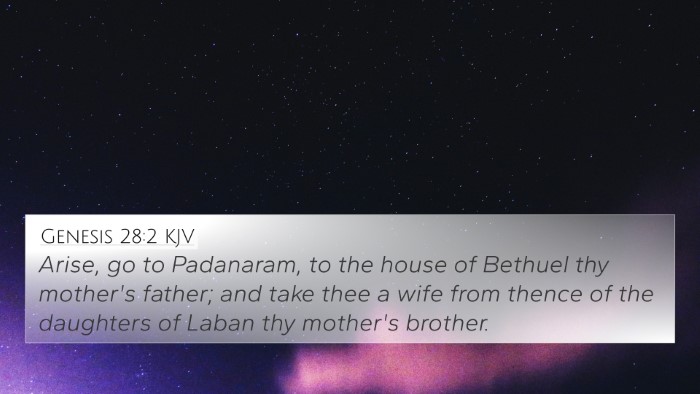Genesis 35:26 - Understanding the Verse
Bible Verse: Genesis 35:26 - "And the sons of Zilpah, Leah's handmaid, were Gad and Asher."
Contextual Background
This verse falls within the narrative of Jacob's family and their lineage. The mention of Zilpah, Leah's handmaid, and her sons Gad and Asher, showcases the complex family dynamics and the cultural practices of the time, particularly regarding concubinage and inheritance.
Verse Meaning Summary
This verse highlights the importance of lineage and family structure in the history of Israel. As per Matthew Henry's commentary, the naming of Gad and Asher signifies the blessings and roles they will play within Jacob's family and ultimately, the nation of Israel. Albert Barnes adds that understanding these names and their implications contributes to grasping the unfolding narrative of God's promises and the eventual destiny of the tribes. Adam Clarke emphasizes the significance of recognizing the handmaids' roles, as they were crucial in the propagation of the clan.
Thematic Connections
The mention of Zilpah and her sons leads to several important themes, such as:
- Divine Providence: The birth of these sons was not merely by human will but reflects God’s plan for Israel's development.
- Familial Relationships: The verse illuminates the complexity of family structures, especially in the context of rivalry and favor within Jacob’s household.
- Identity of Tribes: Each son represents a tribe later in Israel's history, which played a significant role in the promised land allocation and tribal responsibilities.
Bible Verse Cross-References
This verse connects with various other biblical texts that help expand upon its meanings. Here are some notable cross-references:
- Genesis 30:9-10: This passage discusses how Zilpah became a surrogate for Leah.
- Genesis 49:19: Jacob's prophecy over Gad, reflecting his character and future.
- Genesis 49:20: Jacob's blessing over Asher and the prosperity associated with his tribe.
- Exodus 1:2-4: Lists the tribes of Israel, referencing Gad and Asher's importance.
- Numbers 1:14: Discusses the tribe of Gad’s military census and its significance.
- Deuteronomy 33:20-21: Moses' blessing of Gad highlights his role and protective nature.
- Judges 5:17: Mentions Asher regarding his lack of involvement in a critical battle.
Cross-Referencing Biblical Texts
Linking Bible scriptures reveals deeper insights into character developments, themes, and God's overarching narrative. Tools for Bible cross-referencing include a Bible concordance, a Bible cross-reference guide, and following a cross-reference Bible study method. Understanding how to find cross-references in the Bible not only enhances study but also provides clarity on how verses relate to each other.
How This Verse Relates to the New Testament
Not only does Genesis 35:26 provide insight into the Old Testament narrative, but it also demonstrates the continuity of God's plan through the lineage of Jesus Christ. The tribes descended from these sons play a significant role in the fulfillment of prophecies, as seen in:
- Matthew 1:2-3: The genealogy of Jesus includes Judah, though tracing back to Jacob's sons shows the heritage within all twelve tribes.
- Revelation 7:5-8: The tribes are listed again, signifying their importance to God’s redemptive plan.
Conclusion
In summary, Genesis 35:26 is a verse rich with meaning and significance, encapsulating complex family dynamics and theological implications that are foundational for understanding Israel's history and God's covenantal promises. By cross-referencing associated scriptures, one can develop a deeper, thematic understanding of biblical text connections and their meanings.
